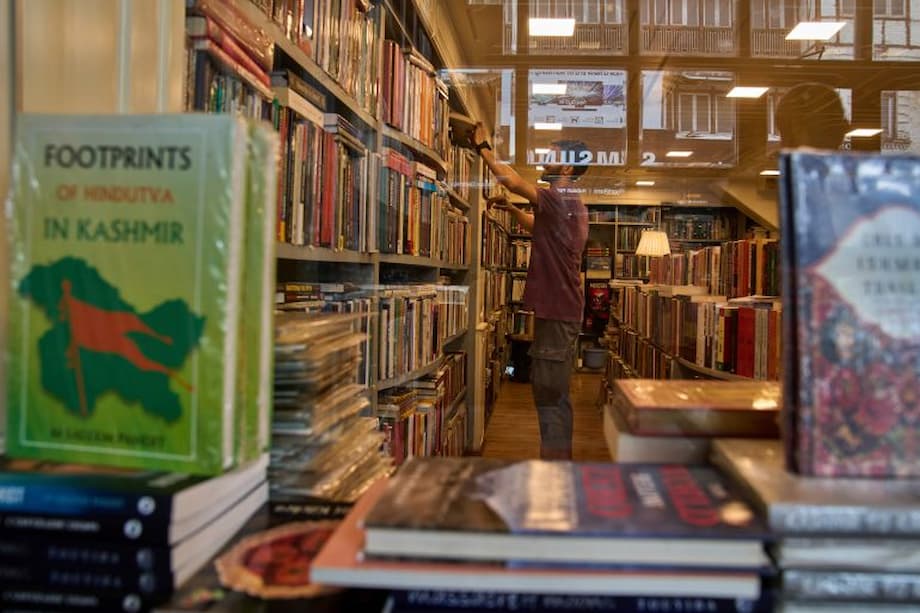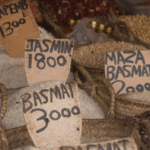Kashmir Book Ban: Censorship, Memory, and the Battle for Narrative
In August 2025, authorities in Indian-administered Kashmir banned 25 books by acclaimed scholars, journalists, and writers, igniting a fierce debate over censorship, historical memory, and the future of free expression in the region. The ban, enforced through police raids on bookstores and the threat of criminal penalties for possession or sale, has drawn condemnation from authors, rights groups, and political parties both within India and internationally. At the heart of the controversy lies a struggle over who gets to tell Kashmir’s story—and what stories are allowed to be told.
- Kashmir Book Ban: Censorship, Memory, and the Battle for Narrative
- What Prompted the Ban?
- Why These Books? The State’s Justification
- Who Are the Authors and What Do Their Books Say?
- Broader Context: Censorship and Kashmir’s History
- Implications: Freedom of Thought, Historical Memory, and Democracy
- Can Banning Books Erase Memory?
- In Summary
What Prompted the Ban?
The Jammu & Kashmir Home Department issued the ban on August 5, 2025, coinciding with the sixth anniversary of the revocation of the region’s semiautonomous status under Article 370 of the Indian Constitution. The official notification, S.O. 203 of 2025, declared the 25 titles “forfeited” under Section 98 of the Bharatiya Nagarik Suraksha Sanhita, 2023 (BNSS), a new criminal code that empowers authorities to ban publications deemed to contain matter punishable under certain sections of the Bharatiya Nyaya Sanhita, 2023 (BNS).
The government claims these books “propagate false narratives and secessionism,” “misguide youth,” and “promote violence” by fostering grievance, victimhood, and even “terrorist heroism.” The banned works include historical analyses, memoirs, investigative journalism, and political commentary by authors such as Arundhati Roy, Hafsa Kanjwal, A.G. Noorani, Sumantra Bose, Anuradha Bhasin, Victoria Schofield, Christopher Snedden, and others. Topics covered range from the origins of the Kashmir dispute and the Partition of India to human rights violations and the lived experiences of Kashmiris under Indian rule.
Enforcement: Raids and Seizures
Following the ban, police launched raids on bookstores across the Kashmir Valley, including in Srinagar, Anantnag, Ganderbal, and Handwara. Officers searched for the proscribed titles, questioned booksellers, and seized stock. The crackdown extended to the Chinar Book Festival in Srinagar, where police inspected stalls for banned works. The order also threatens criminal penalties for anyone found selling or possessing the banned books, making even private ownership a potential offense.
In a striking irony, the ban was announced just as Indian officials were inaugurating a book festival in the region, highlighting the tension between state-sponsored literary celebration and the suppression of dissenting voices.
Why These Books? The State’s Justification
The government’s rationale centers on national security and public order. The official order alleges that the books “distort historical facts,” “glorify terrorists,” and “excite secessionism,” thereby endangering India’s sovereignty and unity. Authorities argue that such literature could radicalize youth, promote enmity between communities, and undermine national integration.
However, critics point out that the order offers only broad conclusions, without citing specific passages or evidence of imminent violence. Many of the banned works are published by reputable houses and are recognized as serious scholarship or well-researched journalism. The notification itself concedes that the books are “disguised as historical or political commentary,” essentially acknowledging they are presented as analysis or opinion, not overt calls to violence.
Legal and Constitutional Questions
Section 98 of the BNSS allows for the forfeiture of publications if they appear to contain matter punishable under certain sections of the BNS, including those relating to endangering sovereignty, promoting enmity, or making assertions prejudicial to national integration. Yet, India’s Constitution guarantees freedom of speech and expression under Article 19(1)(a), with restrictions permitted only on narrow grounds such as public order or incitement to violence.
Legal experts and rights groups, including the Internet Freedom Foundation (IFF), argue that the blanket ban is legally untenable. The Supreme Court of India has repeatedly held that mere discussion or advocacy of a viewpoint, however unpopular, is protected speech unless it amounts to direct incitement. In the landmark Shreya Singhal v. Union of India (2015) case, the Court warned against broad or pre-emptive suppression of speech, especially in the realm of political or academic discourse.
Who Are the Authors and What Do Their Books Say?
The list of banned books reads like a who’s who of Kashmir scholarship and critical commentary:
- Arundhati Roy – Booker Prize-winning author, whose book Azadi includes essays on state violence and disappearances in Kashmir.
- Hafsa Kanjwal – US-based academic, author of Colonizing Kashmir: State-Building Under Indian Occupation, examining how India consolidated control over the region.
- A.G. Noorani – Constitutional expert, whose The Kashmir Dispute 1947–2012 is a comprehensive account of the conflict’s legal and political history.
- Sumantra Bose – Professor at the London School of Economics, author of Contested Lands and Kashmir at the Crossroads, exploring the region’s complex geopolitics.
- Anuradha Bhasin – Journalist, whose The Dismantled State documents the aftermath of Article 370’s revocation.
- Victoria Schofield – Historian, author of Kashmir in Conflict.
- Christopher Snedden – Australian political scientist, author of Independent Kashmir.
Other banned works include feminist testimonies, human rights documentation, and analyses of the region’s political evolution. The diversity of perspectives—Indian, Kashmiri, and international—reflects the complexity of the Kashmir issue.
Authors and Scholars Respond
Authors and intellectuals have expressed shock and dismay at the ban. Angana Chatterji, co-author of the now-banned Kashmir: The Case for Freedom, said:
The order underscores the state’s intent to criminalise scholarship and render it seditious. The symbolic and material impact of this ban stands to be extensive. It restimulates psychological operations to terrify and isolate Kashmiris, and silence their pain and resistance.
Historian Sumantra Bose, whose family has faced censorship since colonial times, rejected the government’s accusations, stating his work aims to identify pathways to peace. Anuradha Bhasin defended her book as well-researched and challenged authorities to prove it glorifies terrorism.
Mirwaiz Umar Farooq, chief cleric and separatist leader, commented:
Banning books by scholars and historians will not erase historical facts or lived memories, and exposes the insecurities of those behind such actions.
Broader Context: Censorship and Kashmir’s History
Censorship is not new to Kashmir. The region has long been subject to communication blackouts, newspaper bans, and the detention of journalists. Since the armed uprising of 1989 and especially after the 2019 revocation of Article 370, authorities have increasingly targeted not just media but also academia and civil society. The current book ban is seen as part of a broader effort to control the narrative about Kashmir and suppress dissenting voices.
Religious and Political Dimensions
The crackdown has also extended to religious literature. Earlier in 2025, police raided bookstores in Srinagar to seize works by Islamic scholar Syed Abul A’la Maududi, linked to the banned Jamaat-e-Islami organization. Critics argue that such actions raise concerns about religious freedom and selective enforcement, as similar books remain available in other parts of India.
The government’s approach has drawn comparisons to colonial and authoritarian regimes that sought to control thought by banning books. Ghazala Wahab, a commentator on security and society, noted that while authorities may try to deny young Kashmiris access to their own history, collective memory persists beyond books.
Implications: Freedom of Thought, Historical Memory, and Democracy
The ban’s implications extend far beyond the immediate removal of books from shelves. Critics warn that it sets a dangerous precedent for the suppression of dissent and academic freedom across India. The legal mechanism used—Section 98 of the BNSS—allows for the seizure of banned books not just in Kashmir but potentially nationwide. Publishers, booksellers, and online platforms may withdraw the titles entirely to avoid legal risk, resulting in a de facto national ban.
Digital rights groups like the IFF emphasize that the solution to contested narratives is more dialogue and transparency, not blanket bans. They warn that restricting access to scholarship and commentary undermines democratic discourse and the right to information.
Opposition leaders and parties have condemned the move as an attack on freedom of expression and democracy. Former Chief Minister Mehbooba Mufti argued that censorship amplifies ideas rather than silencing them and deepens alienation in Kashmir. CPI(M) leader M.Y. Tarigami called the ban a blatant act of censorship and demanded its revocation.
International and Academic Repercussions
The ban has attracted international attention, with media outlets and rights organizations highlighting the threat to India’s reputation as a democracy tolerant of diverse views. Scholars fear that the move will deter publishers from printing critical works on Kashmir, chilling academic inquiry and debate. Students and researchers in Kashmir see the ban as an attempt to impose collective amnesia, making it harder to study and remember the region’s history.
Nilanjana Roy, a prominent Indian writer, remarked:
The ban serves as a curated reading list on Kashmir. History shows that such bans rarely succeed, often making the banned material more sought-after.
Can Banning Books Erase Memory?
Despite the government’s efforts, many believe that banning books cannot erase the realities they describe or the memories they preserve. As Mirwaiz Umar Farooq and others have pointed out, lived experiences and oral histories endure even when written accounts are suppressed. The attempt to control which histories and accounts circulate is seen as an effort to shape what future generations know about Kashmir—but it also risks deepening mistrust and alienation.
History is replete with examples of banned books becoming symbols of resistance and curiosity. In the digital age, information is harder to suppress, and attempts at censorship often backfire, drawing greater attention to the prohibited works.
In Summary
- In August 2025, authorities in Indian-administered Kashmir banned 25 books by prominent scholars, journalists, and writers, citing national security and public order concerns.
- The ban, enforced through police raids and the threat of criminal penalties, targets works on Kashmir’s history, politics, and human rights, including those by Arundhati Roy, Hafsa Kanjwal, and A.G. Noorani.
- Critics argue the ban is a sweeping act of censorship that undermines free expression, academic inquiry, and democratic values, with potential nationwide effects.
- Legal experts and rights groups contend that the ban is constitutionally and legally questionable, lacking specific evidence of incitement or imminent violence.
- The move is seen as part of a broader pattern of suppressing dissent and controlling the narrative about Kashmir, with implications for historical memory and the right to information.
- Authors, scholars, and political leaders warn that banning books cannot erase lived experiences or historical facts, and may instead amplify the very ideas the state seeks to suppress.












